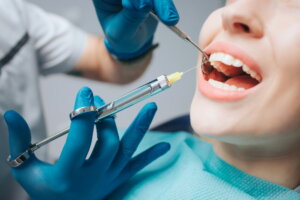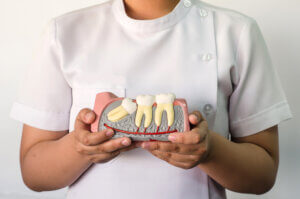
Most patients feel anxious and apprehensive about the prospects of getting their wisdom teeth removed. Discomfort is usually the number one concern for the majority of people facing any type of oral surgery. However, if you work with Murrieta’s leading wisdom teeth removal specialist, there’s no reason to worry.
Your oral surgeon will discuss anesthesia options with you beforehand and use the one that works best in your situation. This way, you’ll be safe and comfortable throughout your procedure. To get to know more about different types of discomfort management that may be used, read on.
What types of anesthesia can be used for wisdom teeth removal? 
Oral surgery includes sedation to eliminate discomfort and put you at ease. There are three options for discomfort management commonly used during wisdom tooth extractions. Your surgeon will suggest the best anesthetic based on your needs and run this by you in advance. They will also provide you with instructions on preparation and aftercare that you should follow closely.
1. Local anesthesia
Local anesthesia is injected in the area where the surgery is performed. It’s typically applied to the gums around the tooth. The patient stays conscious but the area that’s being operated on turns numb, so they don’t feel any discomfort. The only thing you may feel is the pressure caused by the instruments the surgeon is using. Nitrous oxide, also known as laughing gas, can be used alongside a local anesthetic to further relax you. The patient breathes it in through a mask that’s put over their nose.
Local anesthesia is mostly recommended for minor procedures, such as when you’re getting a filling. It wears off after a few hours and you may then feel some numbness in your gums, cheek, and lips.
2. IV sedation
Intravenous sedation is administered into a vein through a catheter. The patient isn’t fully conscious during the procedure and they typically have no recollection of it. While they can understand and answer verbal cues, they are fully relaxed and don’t feel any discomfort.
This may be an excellent option for patients who are very anxious about their dental procedure. Although they won’t be asleep, it may feel like it afterward because they likely won’t remember anything that took place. Right after the sedative wears off, you may feel drowsy and sluggish as well as experience low blood pressure, headache, and nausea.
3. General anesthesia
General anesthesia is used to make the patient fully unconscious. Since the patient is completely unaware of what is happening, they feel no pain and have no memory of the procedure. It may be suitable for those who are extremely fearful of undergoing surgery.
There are certain risks associated with general anesthesia, especially if you’re in a high-risk group, like if you have heart disease. However, the team will closely monitor your vital signs to minimize chances of complications. Some short-term side effects that may occur after anesthesia include confusion, dizziness, nausea, and trembling.
Where in Murrieta can I find a dependable teeth removal specialist?
Patients from Riverside County should feel free to contact Temecula Center for Wisdom Teeth & Dental Implants for a consultation about their wisdom teeth extraction. You’ll first have a free evaluation appointment where Dr. Tsvetov assesses their condition and performs the necessary diagnostic testing.
We understand that the prospects of oral surgery can make you uneasy and we do our best to ensure your comfort. This is why your doctor will carefully choose a suitable anesthetic and explain its advantages to you. He will also help you get ready for the procedure and let you know what to expect from the surgery and after it.
If you suspect that you may need a wisdom tooth extraction or another oral surgery, give us a call for expert guidance and excellent care.




